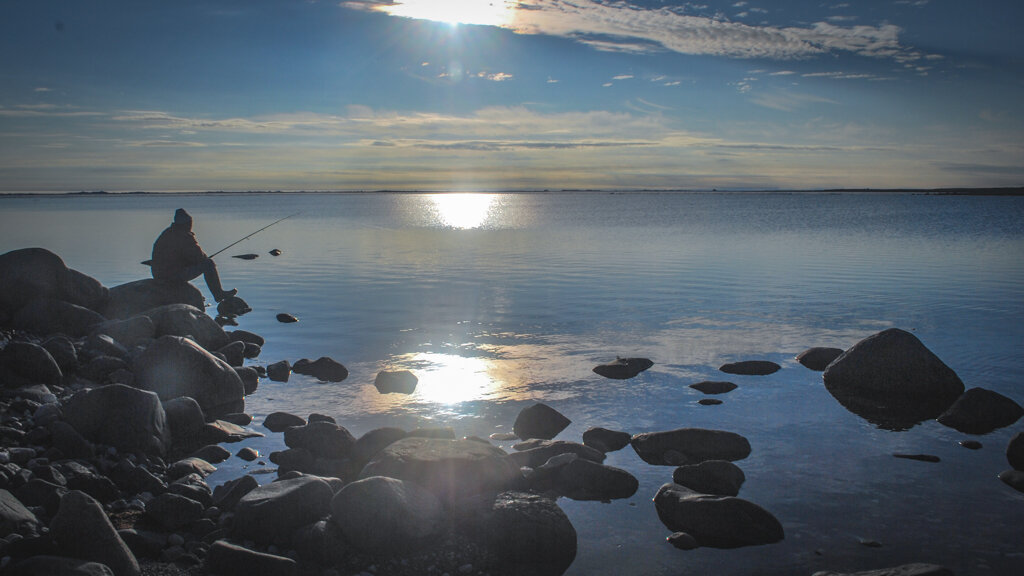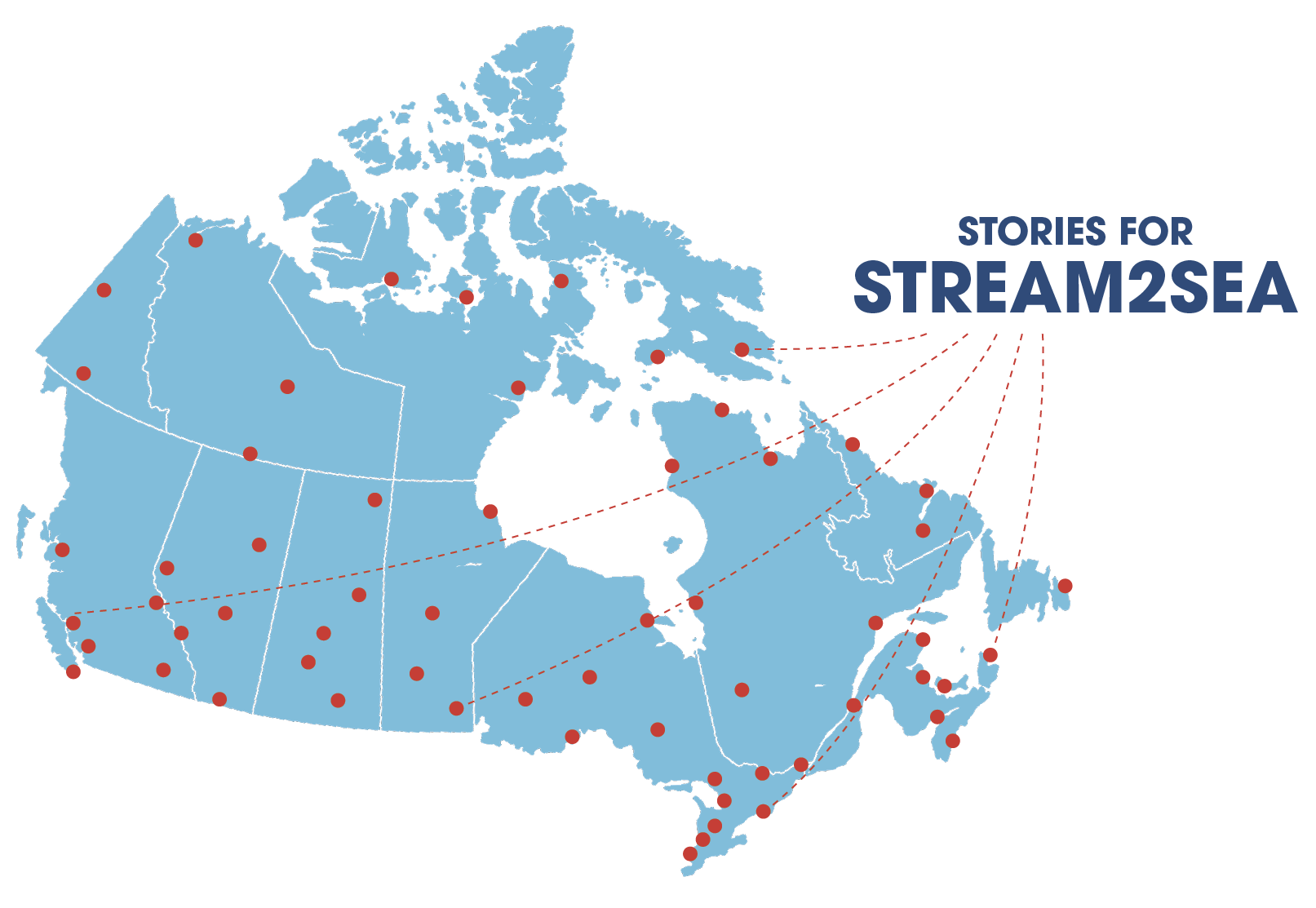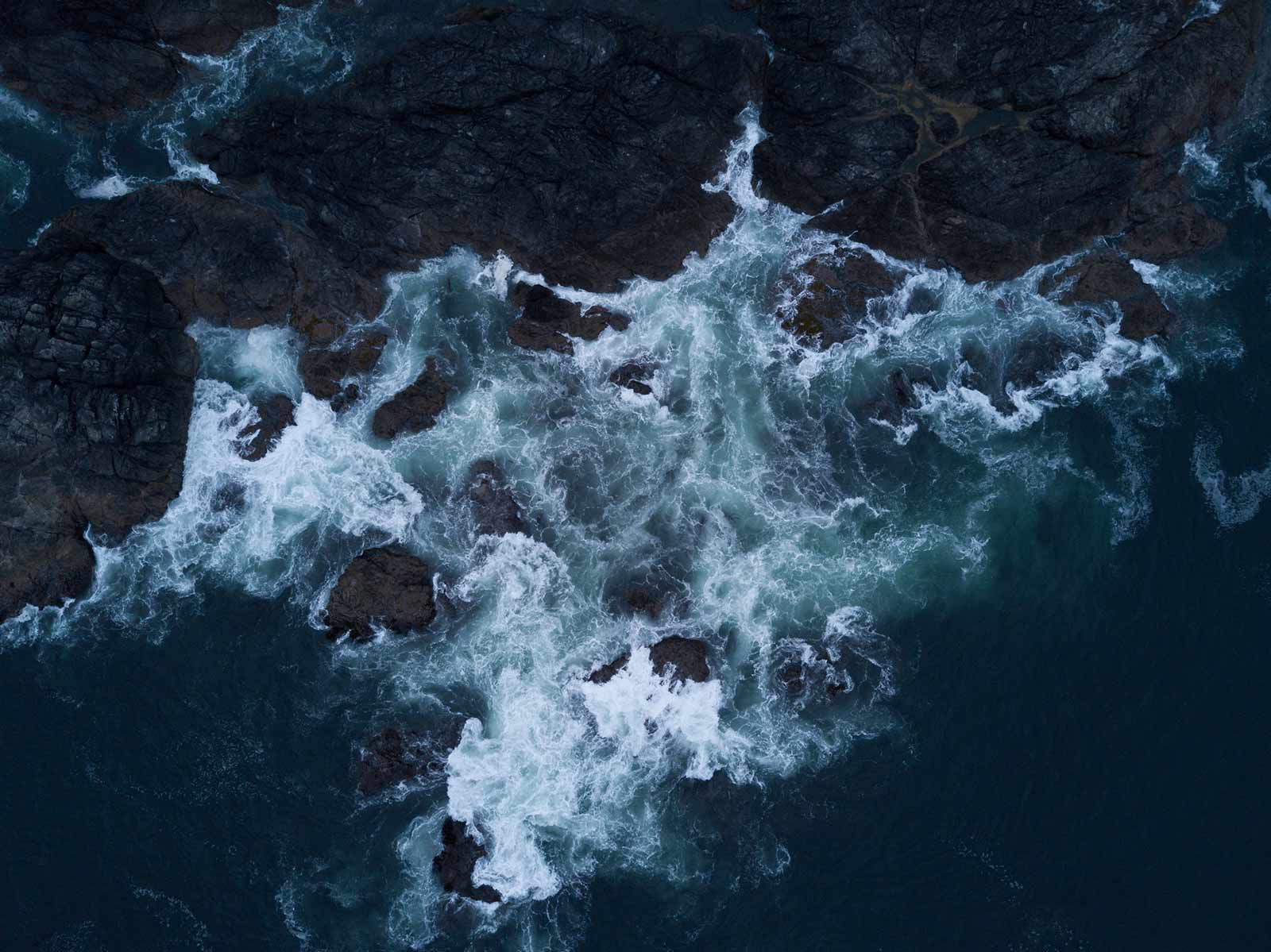
Ulukhaktok, Inuvialuit Settlement Region. Photo credit: Carie Hoover
In Canada, the ocean can be understood as a ‘continuum’, encompassing land, coastal areas, freshwater, ice, and the open ocean; an interconnected expanse, changing rapidly due to climate change. Understanding and adapting to change is crucial to mitigating economic, environmental, and community health risks, and identifying opportunities for a more ocean-literate and committed society.
Ocean literacy encapsulates our relationship(s) with the ocean. Communicating changing relationships is needed to support and bridge ocean science impact with community action. This project addresses this need through community-based participatory research (or CBPR). CBPR values research with participants in ways that recognize and respect different forms of knowledge and local experiences.
The Stories For Stream2Sea platform is collecting Canadians’ stories of changing ocean relationships, through community science journalism and participatory visual methods.
The aim is to co-produce knowledge and solutions to:
-
Showcase diverse and less heard voices in ocean science (Black, Indigenous, People of Colour, women, early career professionals and youth);
-
Contribute to community adaptation and collaboration;
-
Inform ocean climate change policy, conservation management and decision-making with respect to ocean continuum planning, monitoring, and use;
-
Meaningfully partake in the UN Decade of Ocean Science for Sustainable Development (2021-2030).
Using the stories collected through this project, an interactive, virtual storymap will be integrated into the Canadian Ocean Literacy Coalition’s (COLC) Community Platform, enabling wide dissemination of ocean stories among popular and alternative media outlets at regional, national and international levels. This project will strengthen civic-practitioner knowledge sharing and identify observations, drivers, and solutions related to ocean change at a community level.
About the Canadian Ocean Literacy Strategy
On March 16th, 2021, COLC launched Land, Water, Ocean, Us: A Canadian Ocean Literacy Strategy and the accompanying Implementation Plan: Pathways for Collaboration.
The vision for the Strategy is to take action together to ensure a healthy, sustainable, and equitable relationship with the global ocean and Canada’s waterways for present and future generations. Three goals and 9 Action Streams are outlined to help achieve this vision.
Stream2Sea is the first national project being launched under Action Stream #5: Enhancing ocean knowledge through media communication, storytelling, and the arts.

Stream2Sea: The Storymap
Over the course of 2022, Canadians from coast to coast to coast, and everywhere in between, will be invited to communicate their changing relationships (e.g., experiences, knowledge systems, observations, solutions) with the ocean (water) to be integrated into a virtual storymap. A storymap is an interactive collection of resources (e.g., video, images, audio) that have been integrated into a digital map. This map allows users and the public at large, to meaningfully explore and interact with the changes shared and solutions offered.
The Stream2Sea storymap’s ongoing, real-time submission process will invite resource contributions from the Canadian public—a form of community science journalism. Submitted resources will be used to assess thematic and regional significance. This analysis will inform COLC’s ongoing Strategy implementation work and help to advance ocean literacy in Canada over the course of the United Nations Decade of Ocean Science for Sustainable Development (2021-2030).
The Stream2Sea storymap will serve as:
-
an educational tool to support knowledge sharing related to Sustainable Development Goal #14: Life Below Water and UN Ocean Decade outcomes;
-
a research tool used to inform Canada’s ocean science communities by identifying observations, drivers, and solutions related to ocean change at a community level.
The outcomes of this storymap project will strengthen ocean literacy and knowledge sharing across Canada.
Project Team
Dr. Jen McRuer (lead)
Community-based researcher and facilitator in marine conservation, biocultural diversity, and place identity. Her research emphasizes creative, inclusive, and disruptive forms of knowledge sharing, to foster transformative systems thinking and ACTION in local contexts.
Dr. Lisa (Diz) Glithero (co-investigator)
National Coordinator, Canadian Ocean Literacy Coalition and co-lead author of Land, Water, Ocean, Us: A Canadian Ocean Literacy Strategy (March 2021). Diz’s work as an interdisciplinary educator, social science researcher, and project leader specializes in ocean, climate, and sustainability learning and civic engagement.
Martha Paiz-Domingo (Research Assistant)
Martha is working towards her Master’s in Geography, focusing on sustainability. This led her to discover her love of the Arctic. Whether it be environmental education, sustainability, or climate action, her passion for the environment led her to protect it.



